DAY 11 Monday Sep 9, 2019:
We had a day trip to TURKU on our
agenda for the day.
In the morning we had some food
we then took the train to the airport.... the day pass we had bought the previous day was still valid. We picked up our rental car and started our drive.
Our first stop was Castle Raseborg in
Snappertuna village.
The city of Raseborg is situated
halfway between Helsinki and Turku, on Finland’s south coast and on
the main street of Finnish history and culture. Raseborg has six
stars: The historic ironworks of Fiskars and Billnäs, Raseborg
castle ruins, the Svartå Manor, Ekenäs with its quaint small wooden
houses and the magnificent archipelago, which contains Ekenäs
National Park.
After strolling through the castle ruins we drove on to Fiskars craft village.
FISKARS CRAFT VILLAGE:
Fiskars village is a template on how to reinvigorate any small village which has lost its relevance with moving times..
It was a small Finnish village where the company Fiskars metal tool company — famous for making scissors, knives, and gardening tools was founded in the 17th century. The town had thrived as an industrial and commercial center for more than 300 years, but by the 1980s, it became clear that the iron works were too small to support a global business. Fiskars shifted the bulk of its operations to larger facilities elsewhere in Finland and in the Midwestern United States. As a result, many of the factories and homes sat empty and were falling apart.
One night, Lindberg had an epiphany. Started inviting top notch craftspeople to move to the village and pursue their craft there. Now it has become a model craft village.
600 people live in Fiskars Village, and among them are some of Finland's most respected creative talents. They encompass world-class furniture makers, contemporary glassblowers, innovative jewelry designers, and groundbreaking artists, one of whom builds sculptures out of fabrics like silk and linen. The town is just over an hour's drive west of Helsinki and makes for a lovely day trip from the capital.
The village has a lot of rural charm. With
its cobalt lakes and forests of oak, maple, and white birch, the town
feels a world away from Helsinki. The main street is dotted with
restored butter-yellow buildings that now house small shops and
cafés.
Tree-lined paths follow a river that winds through the village, leading to early-19th-century villas and lovely old wooden buildings, including a blacksmith foundry, a granary, and a copper smith workshop, now reinvented as restaurants and exhibition halls.
The artists' homes, mostly rustic, one-story structures painted white and oxblood, are scattered on backstreets or throughout the surrounding woodlands.
We drove on.

Tree-lined paths follow a river that winds through the village, leading to early-19th-century villas and lovely old wooden buildings, including a blacksmith foundry, a granary, and a copper smith workshop, now reinvented as restaurants and exhibition halls.
The artists' homes, mostly rustic, one-story structures painted white and oxblood, are scattered on backstreets or throughout the surrounding woodlands.
We drove on.

TURKU:
Our final destination was Turku, a city
on the southwest coast of Finland, which straddles the Aura River. As with any European city dating from the Middle
Ages, it boasts of a riverfront, market square, castle and cathedral. In fact, turku means market square.
Dating from the 13th century, it's known for Turku Castle, a medieval
fortress with a history museum, perched at the river mouth.
Restaurants line the cobbled riverside streets. On the eastern bank
lies the Old Great Square, a former trade hub, surrounded by grand
buildings. The nearby Turku Cathedral houses a royal tomb and a
museum.


Located along the bank of
the River Aura, the statue entitled ‘A Meeting in Turku in 1812’
has an intriguing historical context. We took several silly pics there.
A Meeting in Turku in 1812:
Alexander I and Karl Johan were negotiating about how Sweden and Russia should respond to the threat of Napoleon. It was also notable for being the point at which Sweden gave up its interest in recapturing Finland from Russia. Since 2012 the statue has been in its scenic location along the banks of the River Aura.
Next was the library.
Turku City Library:
The original patron of Turku City
Library was the Swedish-born businessman Fredrik von Rettig. At its
inception the building had class stratification, with the first floor
for the working class and the second for the elite. Eventually this
distinction was dissolved and the library was united for all to
visit. The library’s long history has many stories to tell. A
favorite among the librarians is the helpful ghost who organizes
all the books. We visited the library but were sure not to anger the ghost by making a mess of the bookshelves!!
We wound up our Turku walk and drove back to Helsinki. We had missed out on the castle as it had not come up in our research.
Report on our drive to the lovely lake land is here:








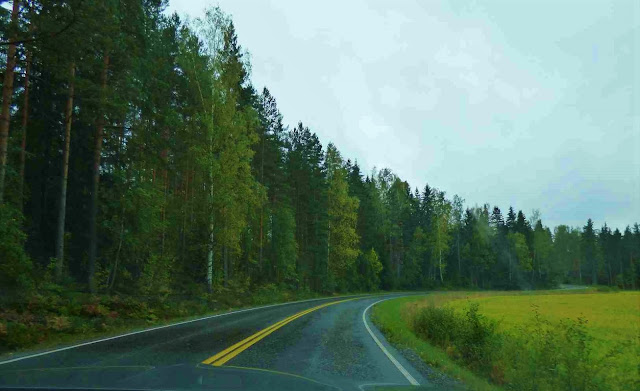




































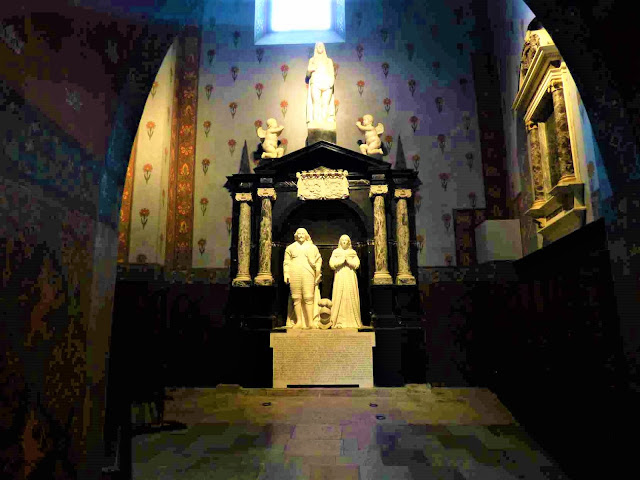












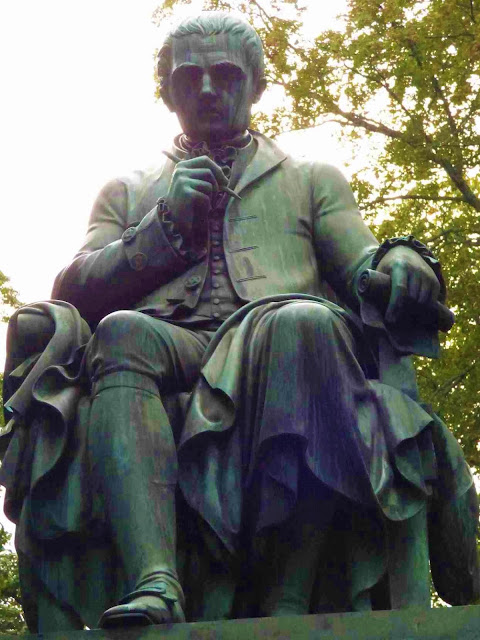



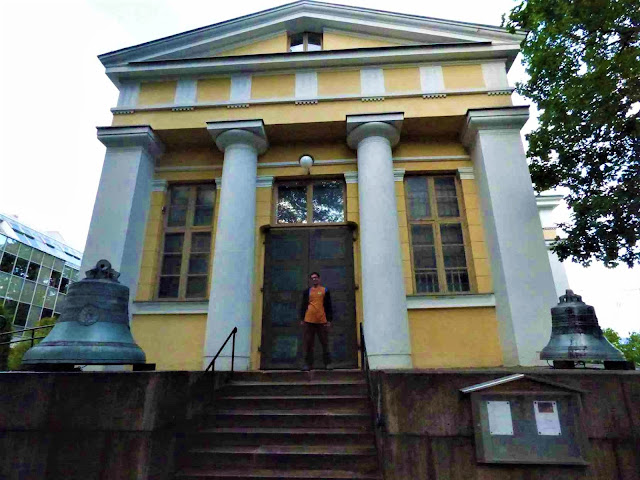








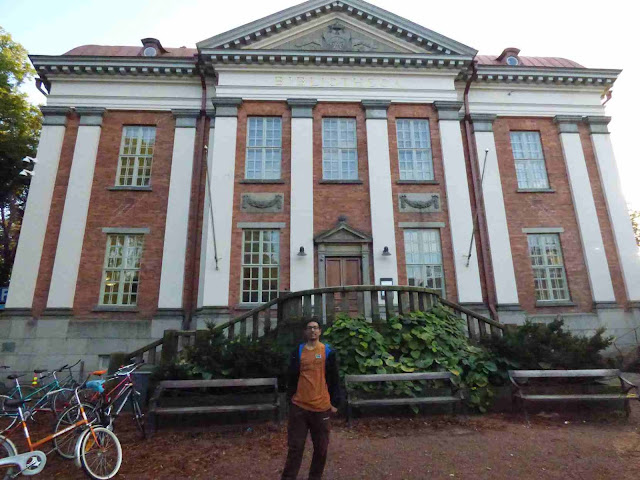








No comments:
Post a Comment